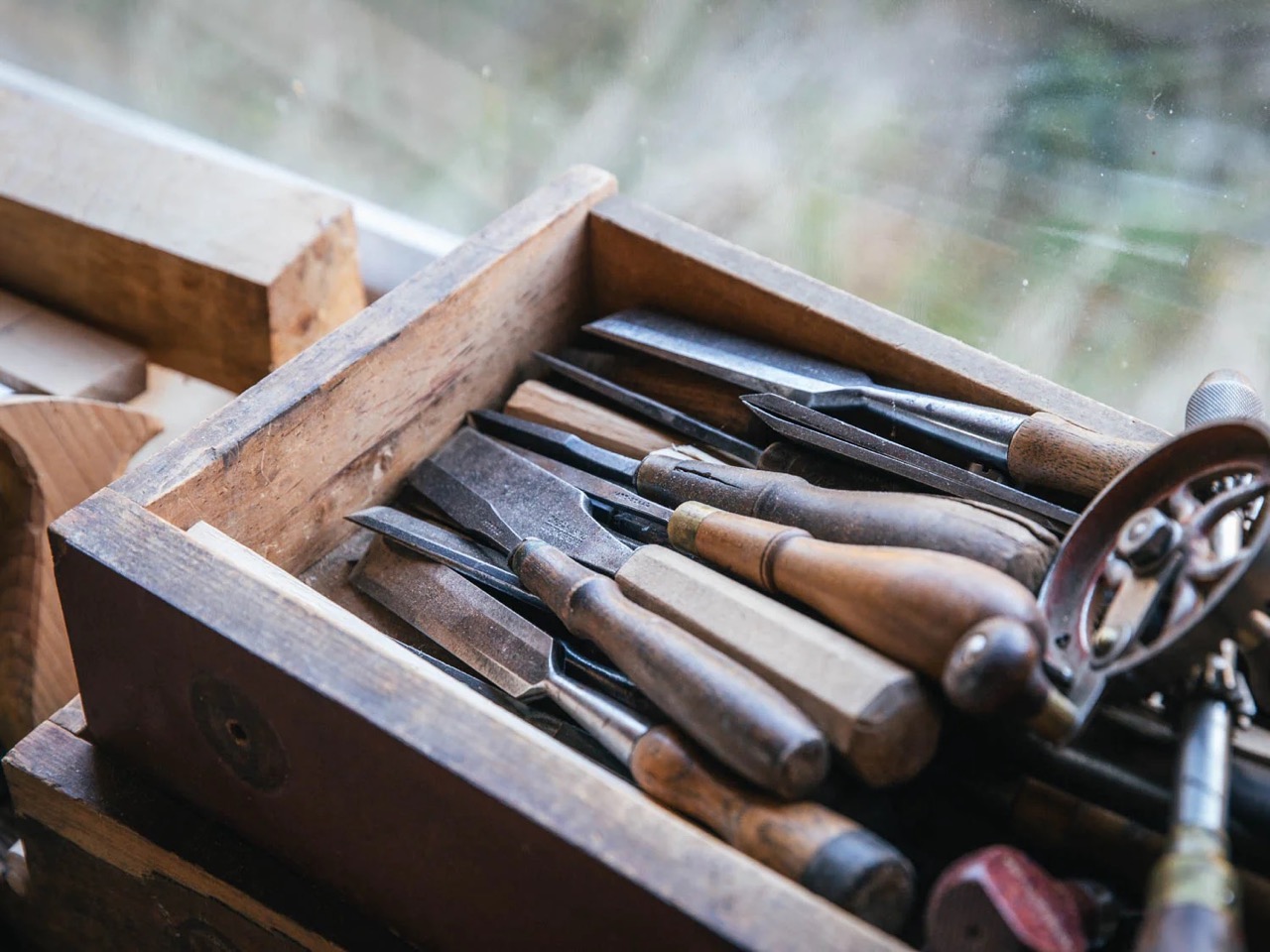

Articles
Where To Get Antique Hand Tools
Modified: December 7, 2023
Discover the best places to find antique hand tools with our informative articles. Explore the history and craftsmanship behind these timeless treasures.
(Many of the links in this article redirect to a specific reviewed product. Your purchase of these products through affiliate links helps to generate commission for Storables.com, at no extra cost. Learn more)
Introduction
Antique hand tools possess a certain charm and appeal that modern tools often lack. These tools carry with them a rich history and craftsmanship, making them highly sought after by collectors, enthusiasts, and even DIY enthusiasts looking to add a touch of nostalgia to their projects. If you’re in the market for antique hand tools, you may be wondering where to find them.
In this article, we’ll explore various sources where you can find antique hand tools, ranging from local brick-and-mortar stores to online marketplaces. Whether you’re a seasoned collector or just starting your journey into the world of antique tools, these sources will help you uncover hidden gems and expand your collection.
So, let’s dive in and discover where you can get your hands on these fascinating pieces of history!
Key Takeaways:
- Embrace the thrill of the hunt by exploring yard sales, flea markets, and estate sales for unique and affordable antique hand tools. Engage with sellers, negotiate prices, and uncover hidden gems to add to your collection.
- Connect with a passionate community of antique tool enthusiasts through clubs, meetups, and shows. Gain valuable knowledge, network with fellow collectors, and immerse yourself in the rich history and craftsmanship of antique hand tools.
Read more: How To Clean Antique Hand Tools
Local Antique Stores
One of the best places to start your search for antique hand tools is your local antique stores. These stores specialize in vintage and antique items, including tools from various eras. They often have a dedicated section for tools or a specific vendor who specializes in antique hand tools.
Local antique stores provide a unique opportunity to physically inspect and evaluate the tools before purchasing them. You can examine the condition, craftsmanship, and any markings or labels on the tools, giving you valuable insights into their authenticity and history.
Additionally, the staff at these stores are usually knowledgeable about the items they have for sale, including antique hand tools. They can provide information about the tools, offer advice on their usage, and even help you identify rare or valuable pieces.
Visiting local antique stores not only allows you to browse their inventory, but it also gives you the chance to network with other enthusiasts. You may come across fellow tool collectors or individuals with a passion for vintage tools who can share their insights, tips, and knowledge with you.
Keep in mind that the inventory at local antique stores may vary, so it’s a good idea to check back frequently or inquire with the store owners about their upcoming acquisitions. You never know when a rare or unique antique hand tool may make its way onto their shelves, waiting to be discovered by an eager collector like you!
Online Antique Marketplaces
If you prefer the convenience of shopping from the comfort of your own home, online antique marketplaces are the perfect solution for finding antique hand tools. These platforms have a vast selection of tools from different eras and regions, allowing you to explore and discover a wide range of options.
One of the advantages of online antique marketplaces is the ability to refine your search based on specific criteria. You can search for tools by category, era, brand, or even by specific features. This makes it easier to find exactly what you’re looking for, whether it’s a rare collectible or a specific type of tool.
When shopping on online marketplaces, it’s important to thoroughly read the item descriptions and examine the provided photos. Look for any signs of wear, damage, or missing parts. Some sellers may also provide information about the tool’s history, making it easier to assess its authenticity and value.
It’s also a good idea to check the seller’s reputation and reviews before making a purchase. Look for sellers with positive feedback and a track record of shipping items promptly and securely. This will help ensure a smooth transaction and minimize the risk of purchasing counterfeit or misrepresented items.
Some popular online antique marketplaces to consider for antique hand tools include eBay, Etsy, Ruby Lane, and LiveAuctioneers. These platforms provide a wide variety of tools and give you the opportunity to browse and compare prices from different sellers.
When using online antique marketplaces, keep in mind that shipping costs and delivery times may vary depending on the seller’s location. Also, factor in any import/export restrictions or customs regulations if you’re purchasing tools from a seller in a different country.
Overall, online antique marketplaces offer a convenient and extensive resource for finding and purchasing antique hand tools. Take advantage of the search filters, read the item descriptions thoroughly, and trust your instincts when making a purchase. With some patience and careful consideration, you can add unique and historic tools to your collection with just a few clicks.
Yard Sales and Flea Markets
If you enjoy the thrill of treasure hunting and bargaining, yard sales and flea markets can be excellent places to find antique hand tools at affordable prices.
Yard sales are typically organized by individuals who are looking to declutter their homes or downsize their collections. These sales can often unearth hidden gems, including antique tools that were passed down through generations or discovered in old toolboxes.
When visiting yard sales, it’s important to arrive early, as most of the valuable items tend to be snatched up quickly. Don’t be afraid to strike up conversations with the sellers and inquire about any antique tools they may have for sale. Sometimes, they may have additional items stored away or be willing to negotiate on the price.
Flea markets are another treasure trove for antique hand tools. These events are typically held in large open spaces, with vendors setting up stalls to sell their wares. The advantage of flea markets is the wide variety of items available, including tools from different eras and regions.
When scouting flea markets for antique hand tools, it’s helpful to have a general idea of what you’re looking for. This will enable you to navigate the vast selection more efficiently and focus on the specific items that interest you. Don’t hesitate to haggle with the vendors if you find an item that catches your eye, as many are open to negotiation.
Keep in mind that the condition of tools at yard sales and flea markets can vary greatly. Some may require restoration or cleaning, while others may be in excellent working condition. Be prepared to invest some time and effort into restoring any tools you acquire from these sources.
In addition to yard sales and flea markets, you can also explore local thrift stores and garage sales for antique hand tools. These places often receive donated or second-hand items, and you may stumble upon valuable tools at a fraction of their market price.
Overall, visiting yard sales and flea markets can be a fun and rewarding experience for finding antique hand tools. With persistence and a keen eye, you may uncover rare and unique tools that will become prized possessions in your collection.
Estate Sales and Auctions
Estate sales and auctions can be fantastic opportunities to find a wide range of antique hand tools. These events are often held when someone’s estate is liquidated or when a collection is being sold off. They can yield some of the most impressive and unique finds for tool collectors.
Estate sales are typically organized by professionals who handle the liquidation of an entire estate. These sales can offer a treasure trove of vintage and antique items, including hand tools that have been tucked away for decades. The advantage of estate sales is that the tools are often part of a larger collection, resulting in a higher likelihood of finding rare or specialized tools.
When attending an estate sale, it’s important to arrive early, as the best items tend to get sold quickly. Take your time to carefully inspect the tools on display, as estate sales often allow potential buyers to handle the items. Look for any unique features, craftsmanship, or brands that indicate the tool’s value and desirability.
Auctions, on the other hand, offer a competitive and fast-paced environment for acquiring antique hand tools. Auctions can take place either in person or online, with participants bidding on the tools they desire. The advantage of auctions is that you have the opportunity to set your own price based on your perceived value of the item.
When participating in an auction, it’s crucial to set a budget beforehand and stick to it. It’s easy to get caught up in the excitement and bid more than you initially intended. Additionally, do your research on the tools you’re interested in, so you have a good understanding of their market value.
Both estate sales and auctions require a level of knowledge and expertise in antique hand tools. It’s essential to be familiar with different tool brands, their craftsmanship, and any identifying marks or labels that indicate their authenticity. This knowledge will help you make informed decisions and avoid purchasing counterfeit or replica items.
Attending tool collecting clubs, meetups, or online forums can provide valuable insights into upcoming estate sales and auctions. Other enthusiasts may share information about these events, allowing you to plan and prepare in advance.
Overall, estate sales and auctions offer exciting opportunities to add unique and rare antique hand tools to your collection. Approach these events with knowledge and patience, and you may discover one-of-a-kind pieces that bring history and craftsmanship into your hands.
When looking for antique hand tools, consider visiting antique shops, flea markets, estate sales, and online auction websites. Be sure to inspect the tools for authenticity and condition before making a purchase.
Read more: Where To.Get Rid Of Unwanted Hand Tools
Tool Collecting Clubs and Meetups
If you want to delve deeper into the world of antique hand tools and connect with like-minded enthusiasts, joining tool collecting clubs and attending meetups can be a rewarding experience. These communities offer opportunities to expand your knowledge, share your passion, and access valuable resources for finding antique hand tools.
Tool collecting clubs are organizations comprised of individuals who share a common interest in antique and vintage tools. These clubs often hold regular meetings, organize events, and offer resources such as newsletters, websites, and forums. By joining a club, you can tap into a wealth of knowledge and expertise from seasoned collectors.
Through club meetings, you can learn about different types of tools, their history, and their value. Members often bring their own collections to share, enabling you to see and handle a wide variety of tools up close. Furthermore, clubs may invite guest speakers or arrange educational sessions to further your understanding of antique hand tools.
Attending tool collecting meetups provides a unique opportunity to interact with local collectors and enthusiasts in your area. These informal gatherings allow you to network, exchange information, and learn from others with similar interests. You might discover fellow collectors who are looking to sell or trade tools, further expanding your collection.
Tool collecting clubs and meetups often organize special events, including tool auctions, tool exhibits, and even tool swaps where members can buy, sell, or trade tools. These events can be a goldmine for finding unique or rare antique hand tools, as members bring their best items to showcase or sell.
By becoming an active member of a tool collecting club or attending meetups, you gain access to a supportive community that shares your passion. Fellow collectors can offer advice, help with tool identification, or even alert you to upcoming sales or auctions. You’ll also have the chance to participate in discussions about new discoveries or advancements in the field of antique hand tools.
It’s worth noting that tool collecting clubs and meetups are not limited to physical gatherings. Many clubs have an online presence, allowing you to connect with collectors from around the world. Online forums and social media groups can be valuable platforms for sharing information, asking questions, and trading tools.
Joining a tool collecting club or attending meetups can deepen your appreciation for antique hand tools and create lasting connections with fellow enthusiasts. By being part of a community of like-minded individuals, you’ll have access to a wealth of knowledge and resources that will enhance your journey as a collector.
Antique Tool Shows and Conventions
If you’re passionate about antique hand tools and looking for a concentrated gathering of collectors and vendors, attending antique tool shows and conventions is a must. These events bring together a wide range of antique tool enthusiasts and provide an unparalleled opportunity to explore, learn, buy, sell, and network within the community.
Antique tool shows and conventions showcase an extensive selection of antique hand tools from various eras and regions. Vendors from all over the world come together to display and sell their collections, offering a vast array of tools for enthusiasts to browse and acquire.
At these shows, you’ll find everything from rare and collectible tools to more common pieces that are still valuable for their historical significance. The curated displays at these events often feature tools in pristine condition, allowing you to appreciate the craftsmanship and beauty of these vintage treasures.
Aside from the opportunity to explore and purchase tools, antique tool shows and conventions also offer educational and interactive experiences. Many events feature workshops, demonstrations, and lectures led by experts in the field. These sessions can provide valuable insights into tool restoration, identification, and the historical context of different tool types.
Moreover, these events give you a chance to network with fellow collectors, vendors, and tool enthusiasts. Conversations with experienced collectors can provide valuable guidance and knowledge that will help refine your own collection. You can also participate in discussions about recent discoveries, trends in the market, and emerging tools and techniques.
Attending antique tool shows and conventions allows you to immerse yourself in a vibrant and passionate community that shares your love for vintage tools. These events are not only an avenue for buying and selling, but also a venue for fostering friendships and connections that can last a lifetime.
Some notable antique tool shows and conventions include the Mid-West Tool Collectors Association (MWTCA) Annual Meet, the Early American Industries Association (EAIA) Annual Meeting, and the Antique Tools & Trades in the Tundra event. Additionally, regional shows and conventions are often organized across different areas, catering to local collectors and enthusiasts.
Before attending an antique tool show or convention, it’s advisable to research the event’s schedule, featured vendors, and any specific themes or highlights. This preparation will allow you to make the most out of your visit and ensure that you don’t miss any must-see exhibits or presentations.
Antique tool shows and conventions provide a fantastic platform for immersing yourself in the world of antique hand tools. Whether you’re a seasoned collector or just starting your journey, these events offer a unique opportunity to engage with the community, discover rare tools, and enhance your understanding and appreciation of these fascinating historical artifacts.
Antique Tool Dealers and Resellers
If you’re searching for expertly curated antique hand tools with guaranteed authenticity, turning to antique tool dealers and resellers is a great option. These professionals specialize in sourcing, restoring, and selling high-quality antique tools, providing a reliable and convenient way to expand your collection.
Antique tool dealers and resellers have extensive knowledge and experience in the field. They carefully select tools based on their historical significance, craftsmanship, and condition. Many dealers have established relationships with collectors and sellers, which allows them to acquire rare and unique tools that may be difficult to find through other sources.
One of the main advantages of working with antique tool dealers is the assurance of authenticity. These professionals thoroughly research and verify the tools they sell, ensuring that you’re acquiring genuine vintage pieces. They often provide detailed descriptions, historical information, and any relevant markings or signatures that authenticate the tool’s origin and manufacturer.
When buying from an antique tool dealer, you can expect a higher level of quality and integrity in the tools you purchase. Dealers often invest time and effort into cleaning, restoring, and preserving tools, ensuring that they are both visually appealing and functional. This can save you the time and resources required for restoration when acquiring tools from other sources.
In addition to selling individual tools, antique dealers and resellers may also offer specialized collections or tool sets. These carefully curated selections can provide a comprehensive and cohesive addition to your own collection, with tools that complement each other in terms of era, craftsmanship, or usage.
Antique tool dealers and resellers are not limited to physical stores. Many have online platforms where you can browse their inventory, read detailed descriptions, and make purchases. These online platforms often include high-resolution images, allowing you to examine the tools closely before making a decision.
While working with antique tool dealers typically comes with a higher price tag compared to other sources, the expertise, reliability, and guaranteed authenticity they offer make it a worthwhile investment for serious collectors. It’s important to establish a trustworthy relationship with reputable dealers and resellers, as they can become valuable allies in your pursuit of antique hand tools.
Some well-known antique tool dealers and resellers include Jim Bode Tools, Patrick Leach’s Blood & Gore, and Rose Antique Tools. These establishments have a long-standing reputation for offering exceptional tools and providing excellent customer service.
When purchasing from antique tool dealers and resellers, it’s crucial to carefully read the terms and conditions, including return policies and guarantees. Additionally, ask for any relevant documentation, such as authenticity certificates or appraisals, to accompany the tools you purchase.
Antique tool dealers and resellers cater to collectors who appreciate the beauty, history, and craftsmanship of antique hand tools. Their expertise, attention to detail, and commitment to quality make them an invaluable resource for expanding your collection with authentic and remarkable pieces.
Recommendations and Tips for Buying Antique Hand Tools
Buying antique hand tools requires careful consideration and attention to detail. To ensure a successful and satisfying purchase, here are some recommendations and tips to keep in mind:
1. Do your research: Before diving into the world of antique tools, educate yourself about different types of tools, their history, and their value. Familiarize yourself with reputable brands, identifying marks, and common issues or repairs associated with specific tools.
2. Condition evaluation: Examine the condition of the tool carefully. Look for signs of damage, rust, cracks, or missing parts. While some wear is expected due to the tool’s age, ensure that it is still in usable condition or can be restored without compromising its value.
3. Authenticity verification: For valuable or rare tools, verify their authenticity by researching the manufacturer, checking for identifying marks or stamps, and consulting reference books or online resources. Be wary of counterfeit or replica items, especially in online marketplaces.
4. Seek reputable sellers: Purchase from trusted dealers, resellers, or established antique tool stores. Seek recommendations from fellow collectors or consult online communities for reviews and feedback on sellers you are considering.
5. Ask questions: Don’t hesitate to ask questions about the tool’s history, condition, or provenance. Reputable sellers should be transparent and willing to provide information and clarifications.
6. Handle the tools: Whenever possible, handle the tools and evaluate their ergonomics and weight. Pay attention to the feel and balance, as these factors play a crucial role in usability and comfort during use.
7. Price evaluation: Research comparable items and recent sales to have a realistic understanding of the market value of the tools you’re interested in. Avoid overpaying by setting a budget and sticking to it.
8. Preservation and restoration: If you acquire tools that require restoration or cleaning, familiarize yourself with proper preservation techniques or seek the assistance of professionals who specialize in tool restoration. Improper cleaning or restoration can diminish the tool’s value.
9. Build relationships: Engage with other collectors, join tool collecting clubs, and attend meetups or shows. Building relationships with like-minded enthusiasts and experts can expand your knowledge base, provide access to unique tools, and offer support and guidance along your collecting journey.
10. Trust your instincts: Ultimately, trust your instincts and only purchase tools that genuinely resonate with you. Building a collection of antique hand tools should be a personal and enjoyable experience, so choose tools that capture your interest and bring you joy.
Remember, collecting antique hand tools is not just about acquiring objects but connecting with history, craftsmanship, and a community of passionate enthusiasts. By following these recommendations and tips, you can navigate the fascinating world of antique tools with confidence and build a collection that reflects your interests and appreciation for these timeless artifacts.
Read more: Where To Buy Craftsman Hand Tools
Conclusion
In conclusion, the world of antique hand tools offers a captivating blend of history, craftsmanship, and timeless beauty. Whether you’re a seasoned collector or a beginner looking to embark on this exciting journey, there are various avenues to explore and sources to find these vintage treasures.
Local antique stores provide the opportunity to physically inspect and evaluate tools, with the added benefit of knowledgeable staff who can offer guidance and insights. Online antique marketplaces offer convenience and a wide selection, allowing you to refine your search and discover tools from all corners of the globe.
For those who enjoy the thrill of the hunt, yard sales, flea markets, and estate sales can uncover hidden gems and unique finds. The interactions with sellers and the ability to negotiate can make the process even more rewarding.
Joining tool collecting clubs and attending meetups provides not only a chance to expand your knowledge and learn from fellow enthusiasts but also a platform to network, share experiences, and discover tools from trusted sources within the community.
Antique tool shows and conventions bring together collectors and vendors from far and wide, offering a concentrated gathering of exceptional tools, educational opportunities, and the chance to connect with others who share your passion.
Finally, working with antique tool dealers and resellers provides access to curated collections, guaranteed authenticity, and the expertise of professionals who specialize in sourcing and restoring these historic tools.
When buying antique hand tools, it’s crucial to do your research, evaluate the condition and authenticity of the tools, seek reputable sellers, and ask questions to ensure a successful and satisfying purchase. Cultivating relationships within the antique tool community can enhance your collecting journey and provide valuable resources along the way.
Ultimately, collecting antique hand tools is a deeply personal and rewarding pursuit that allows us to connect with the craftsmanship of the past and preserve a piece of history. So, whether you’re seeking a specific tool to complete a project or simply adding to your collection, may your search be fruitful, and may these antique hand tools continue to spark joy and admiration for generations to come.
Frequently Asked Questions about Where To Get Antique Hand Tools
Was this page helpful?
At Storables.com, we guarantee accurate and reliable information. Our content, validated by Expert Board Contributors, is crafted following stringent Editorial Policies. We're committed to providing you with well-researched, expert-backed insights for all your informational needs.
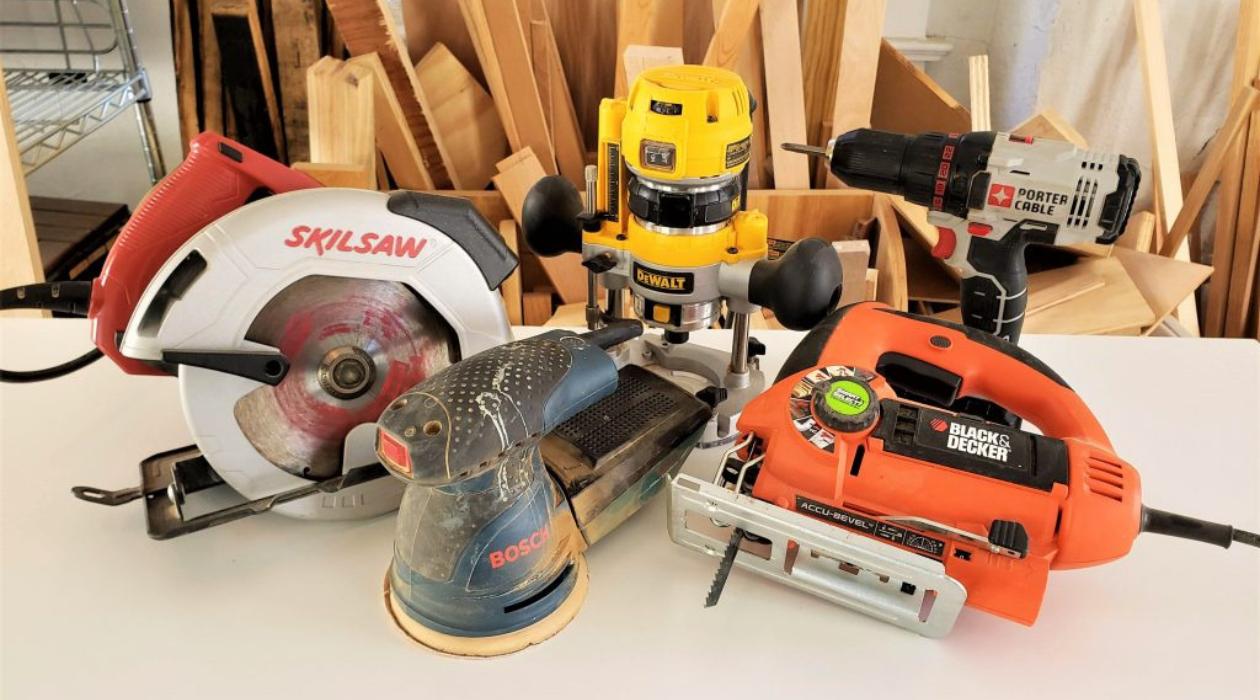
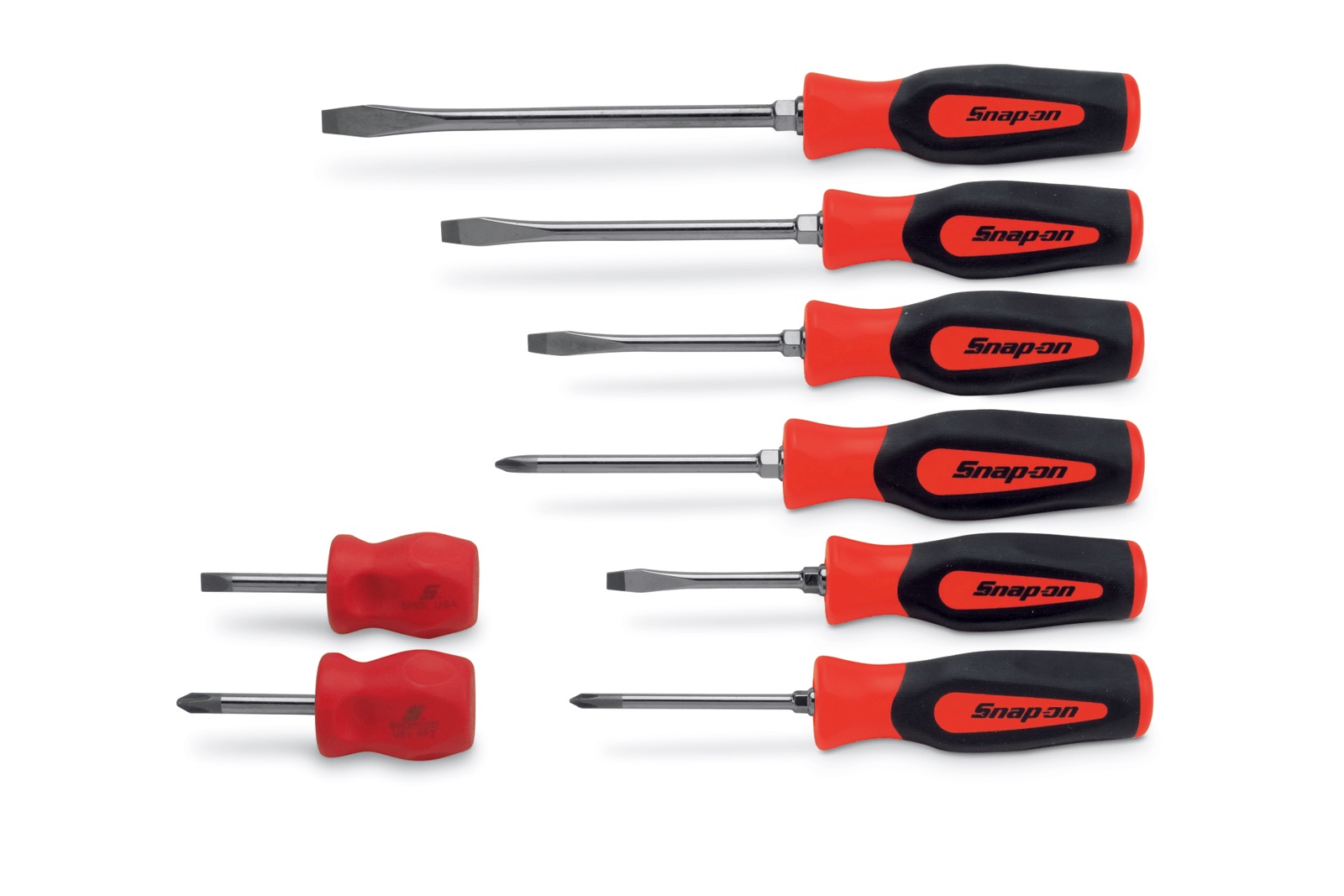
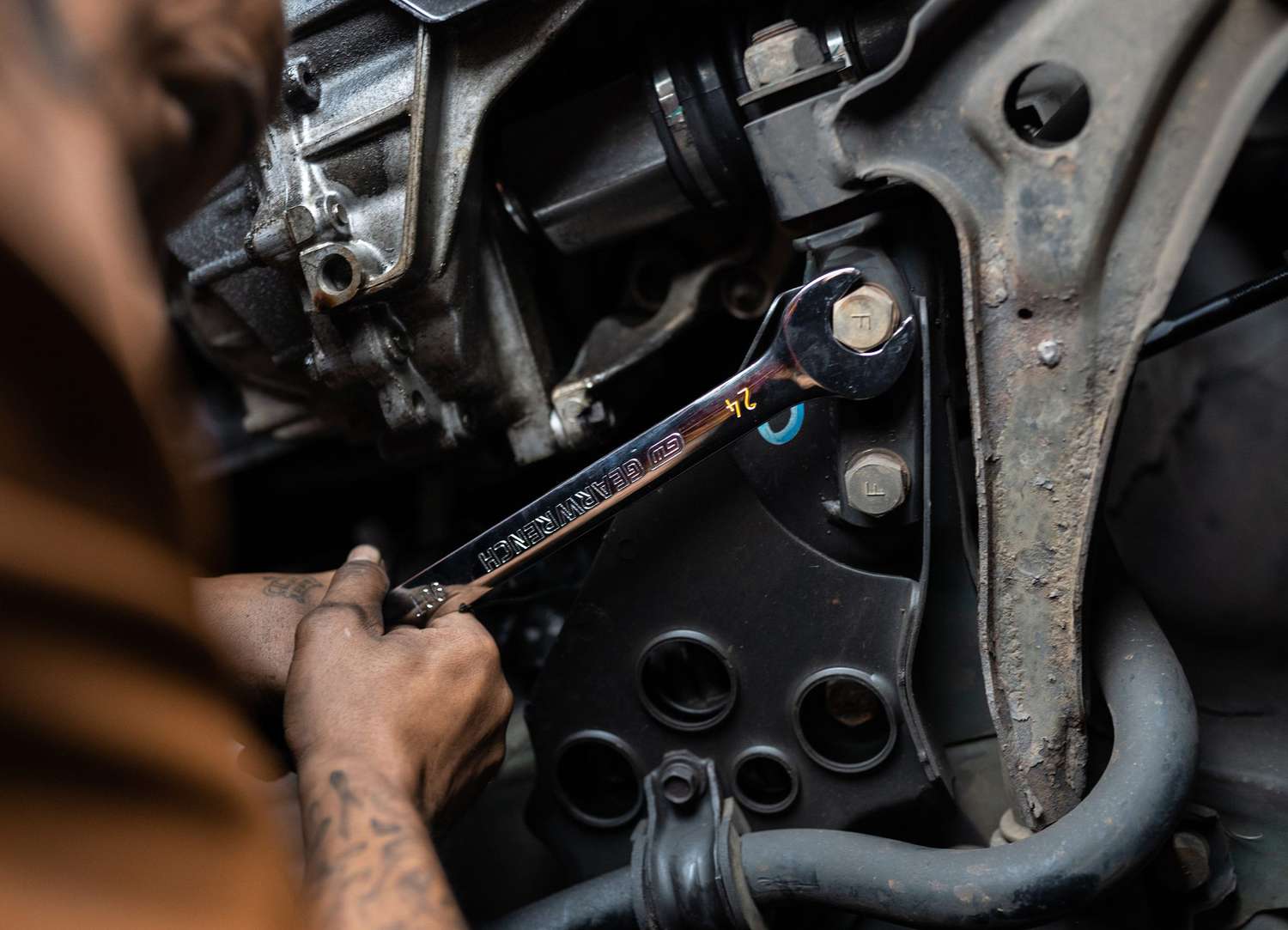
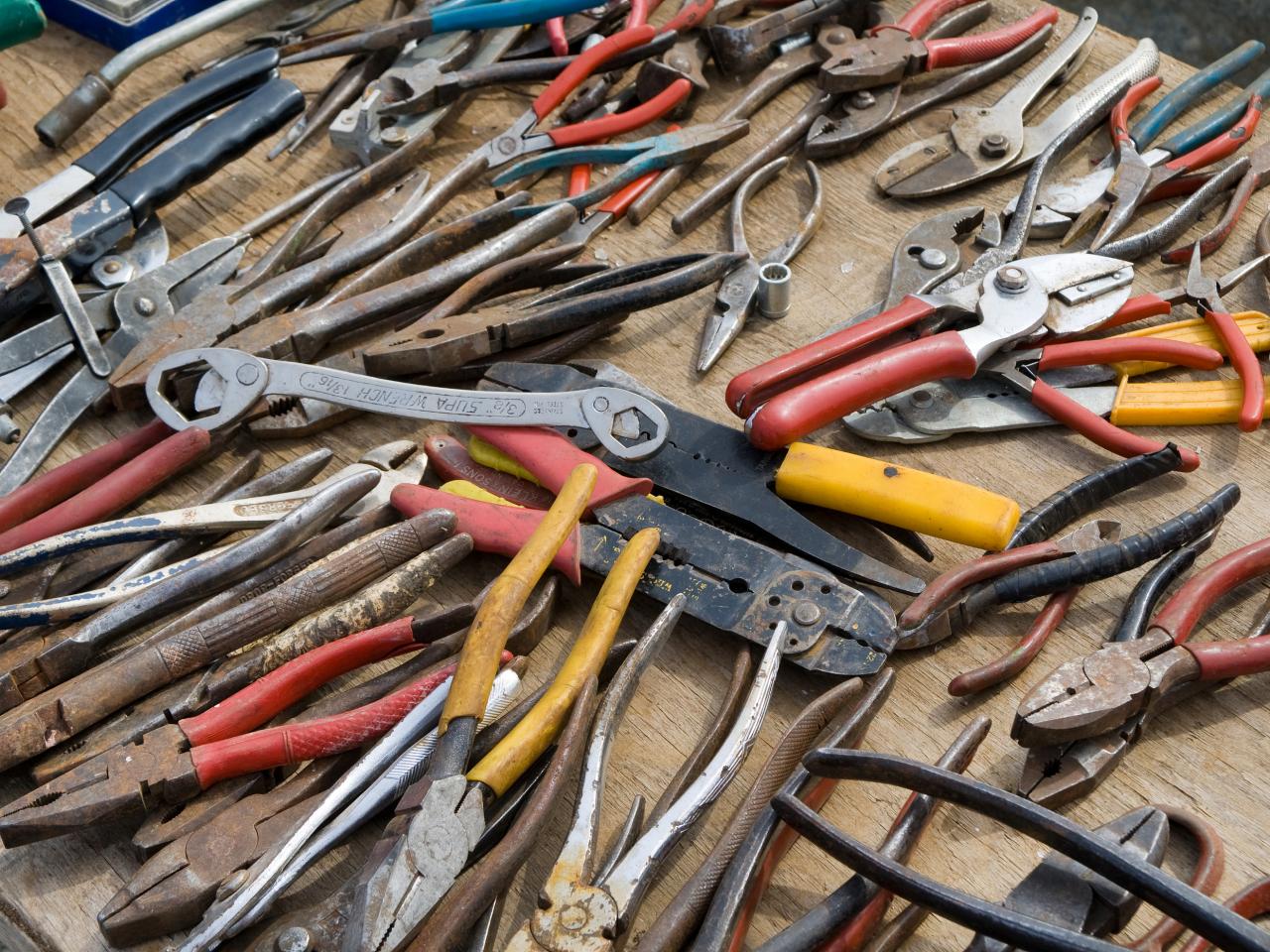
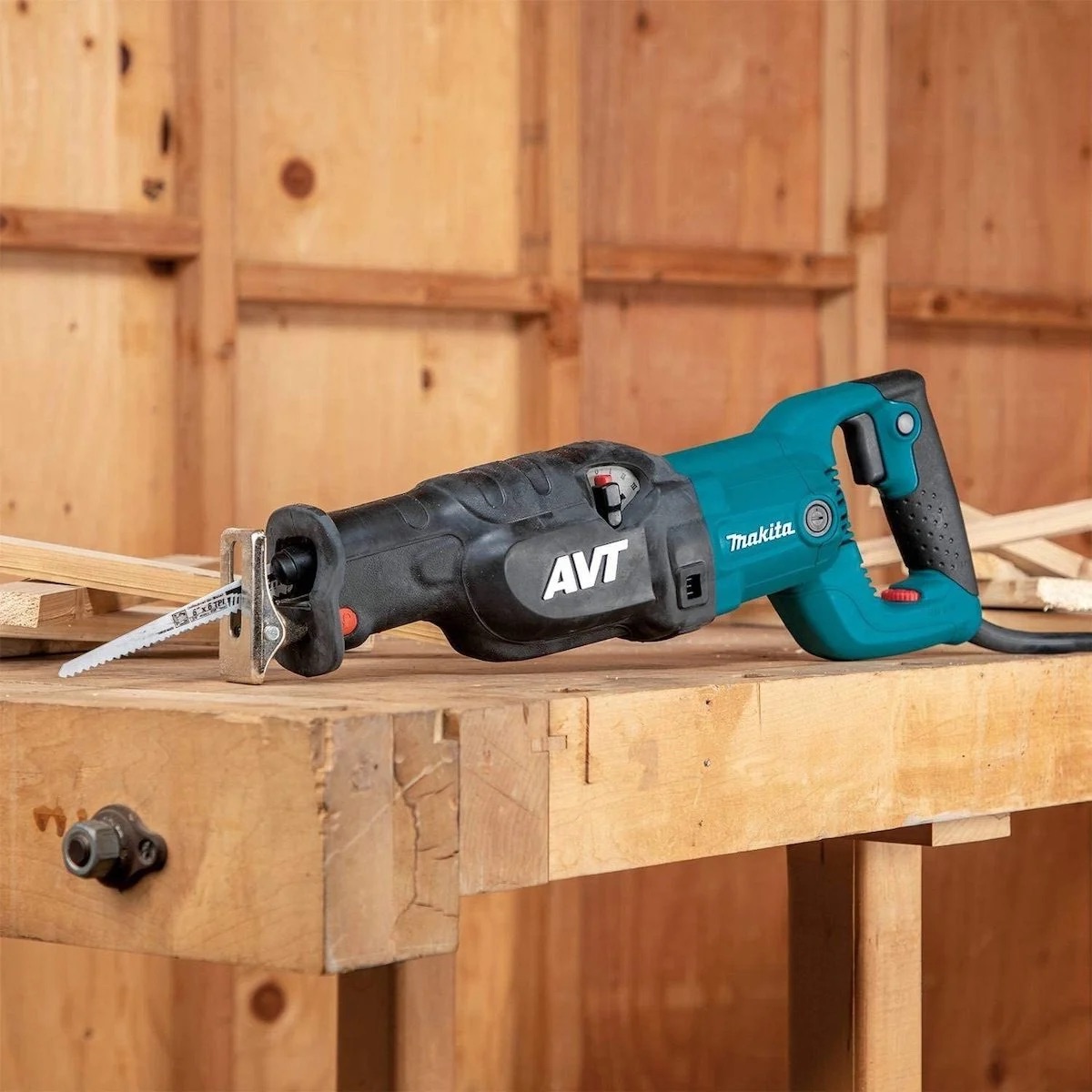
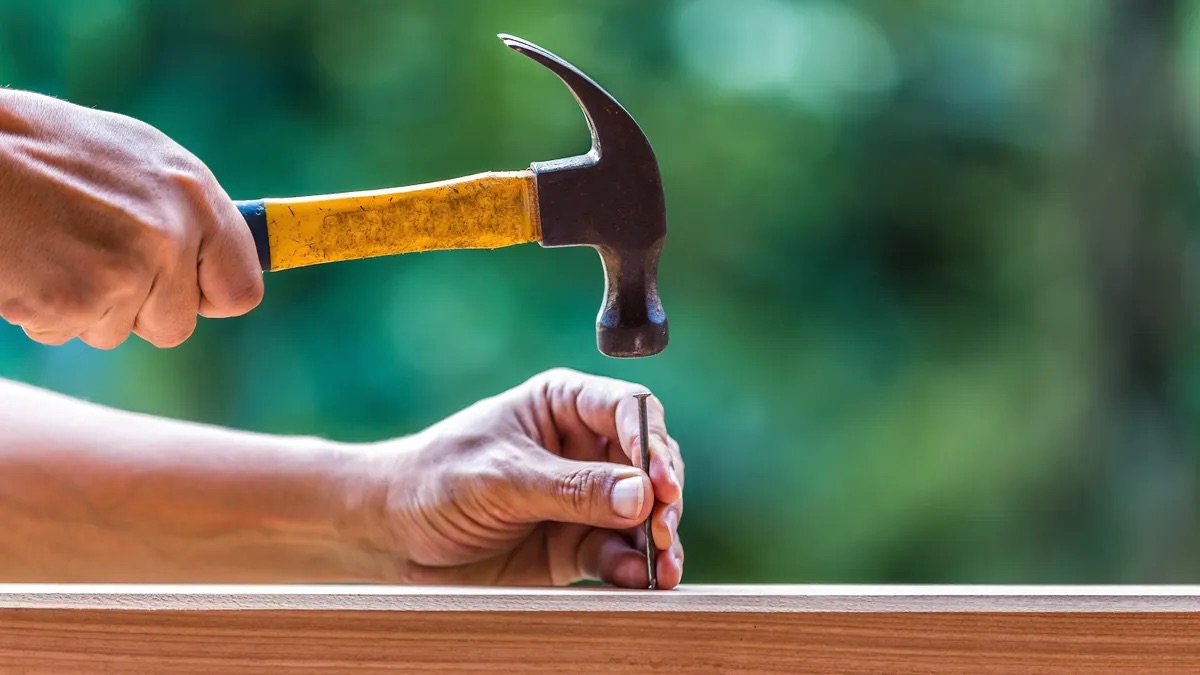
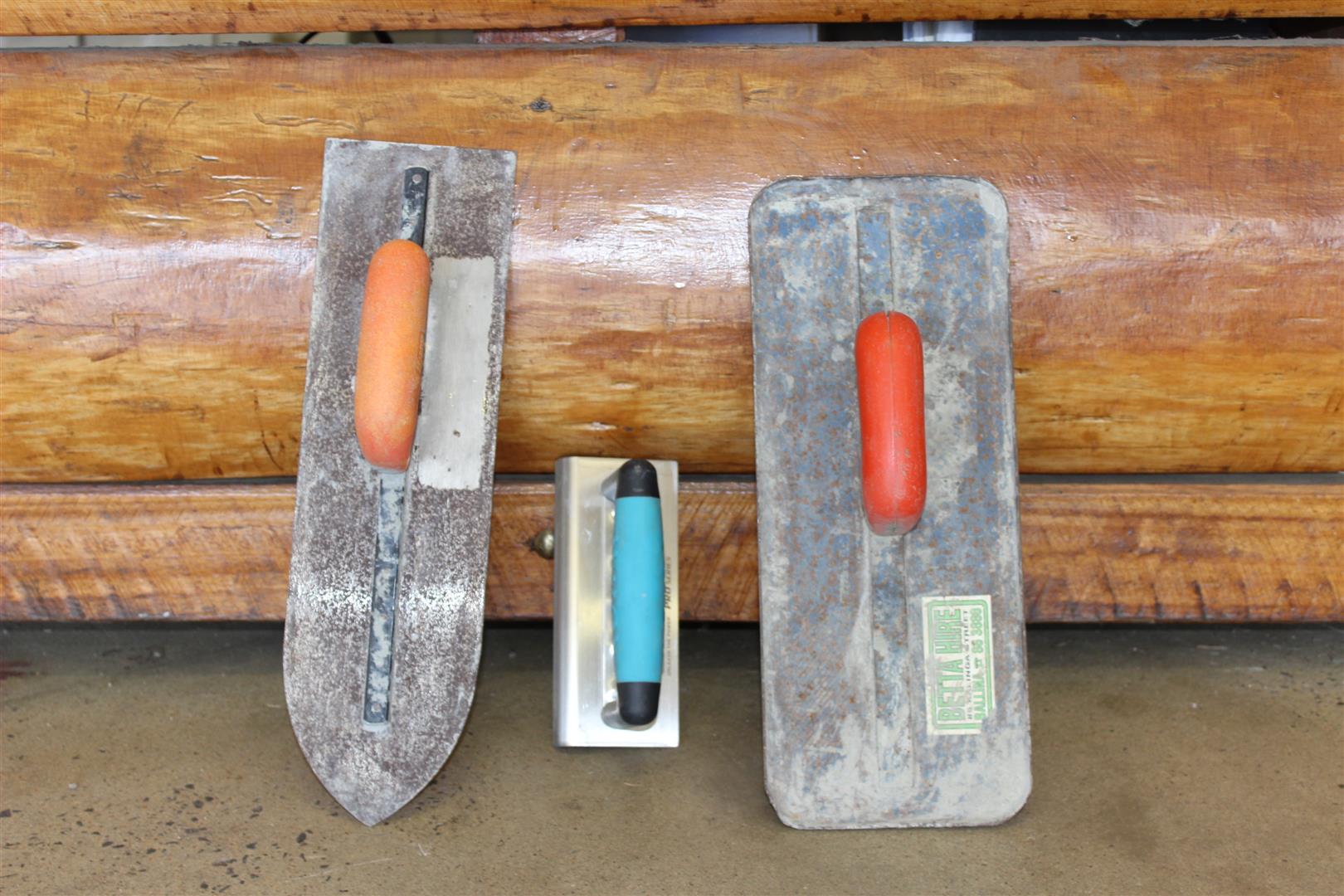
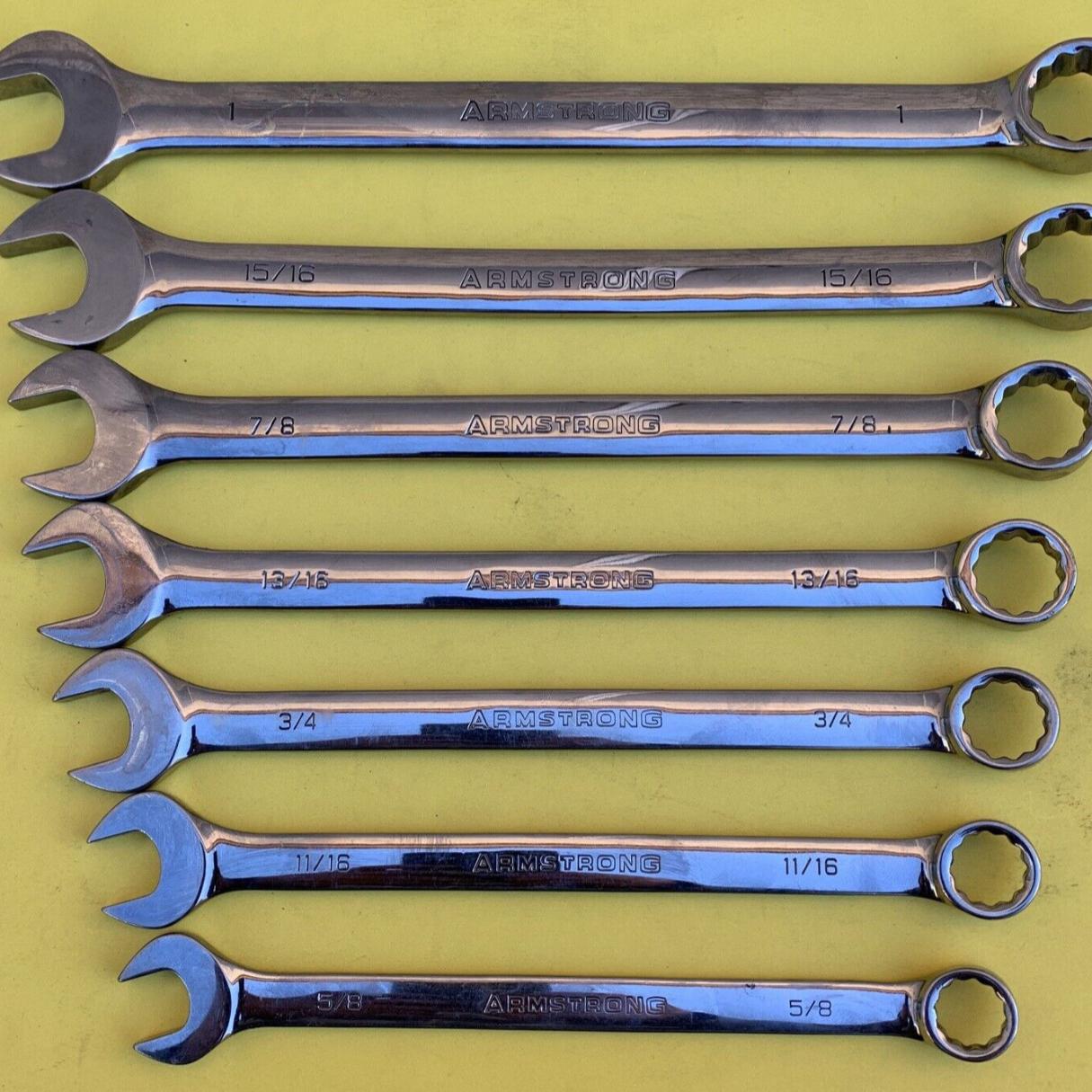
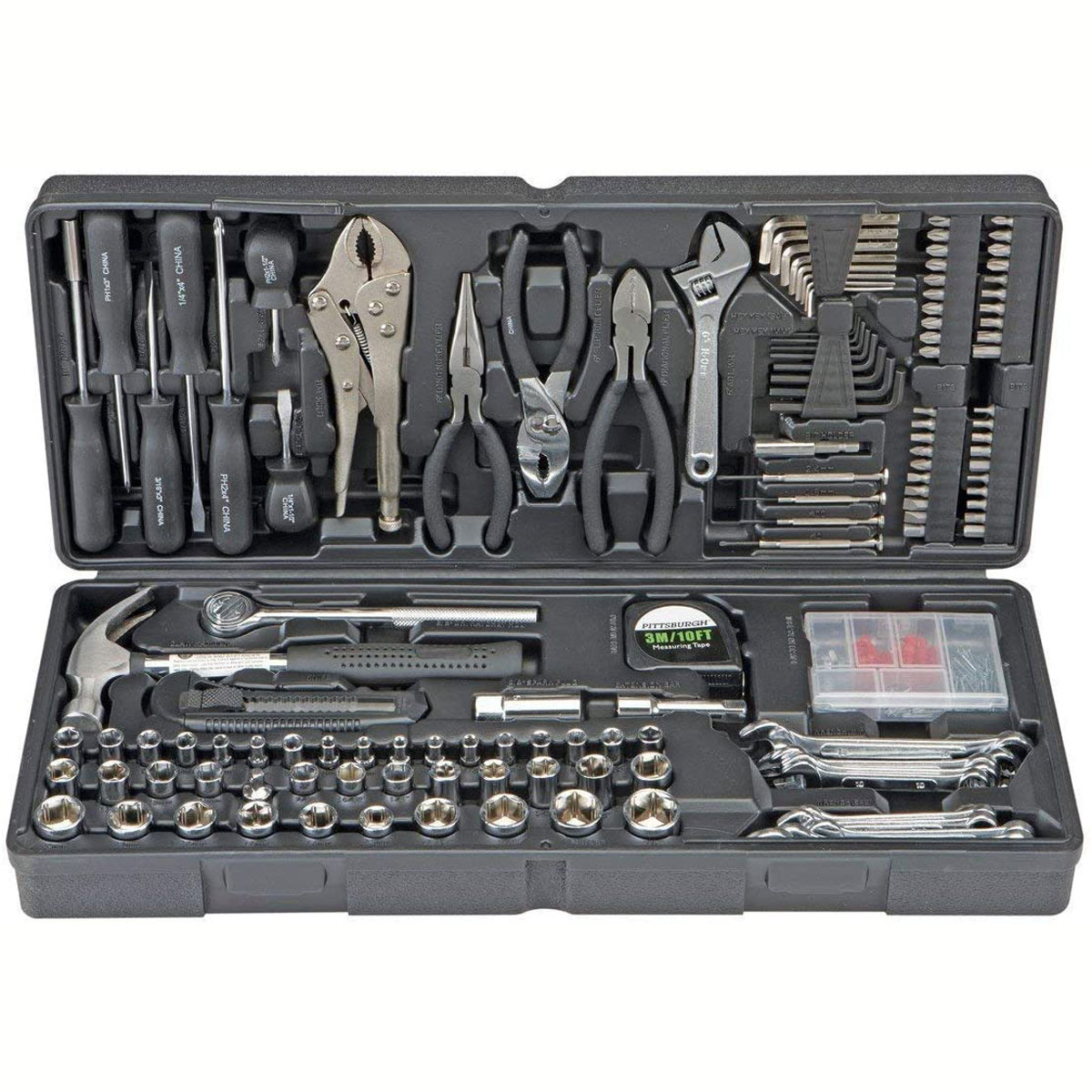
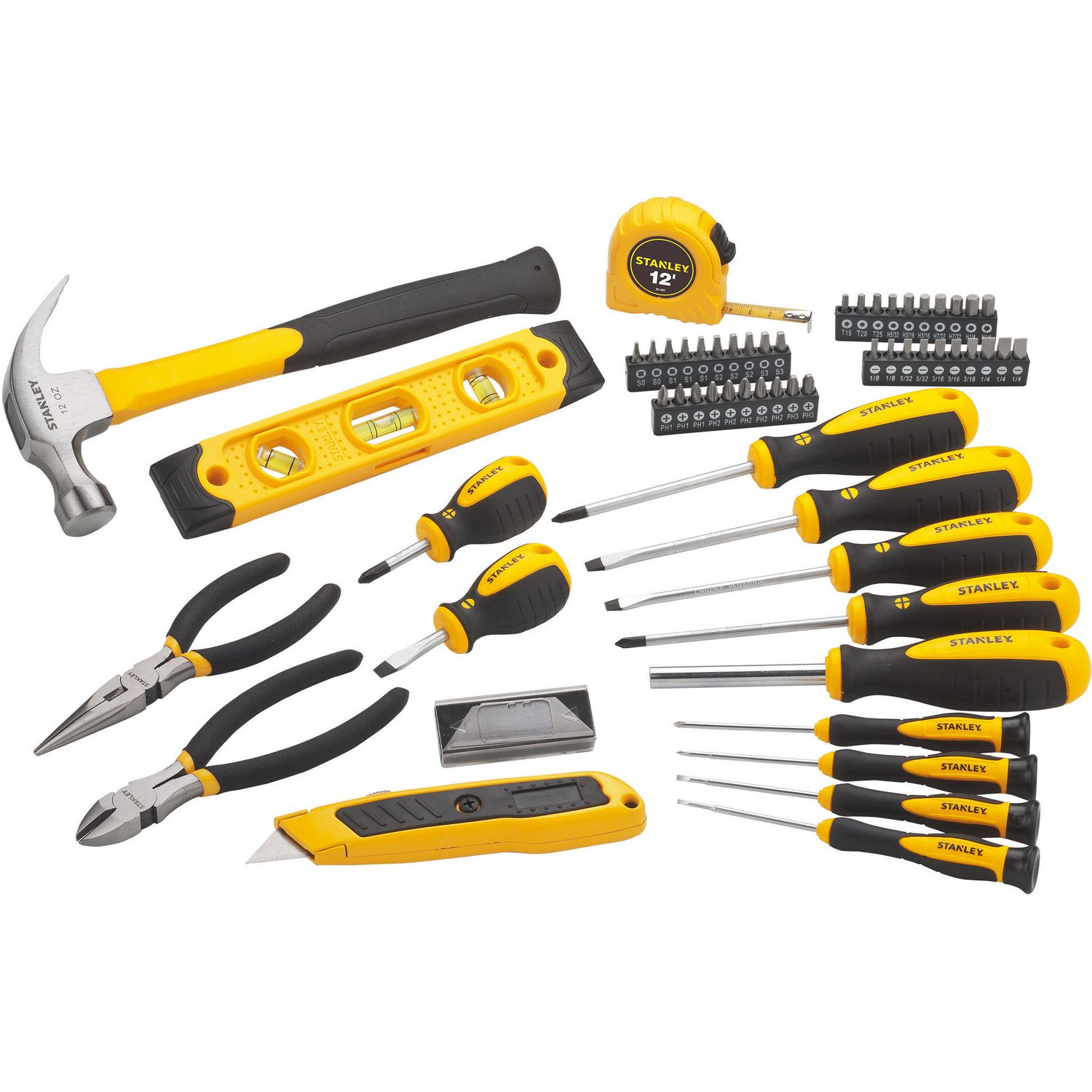
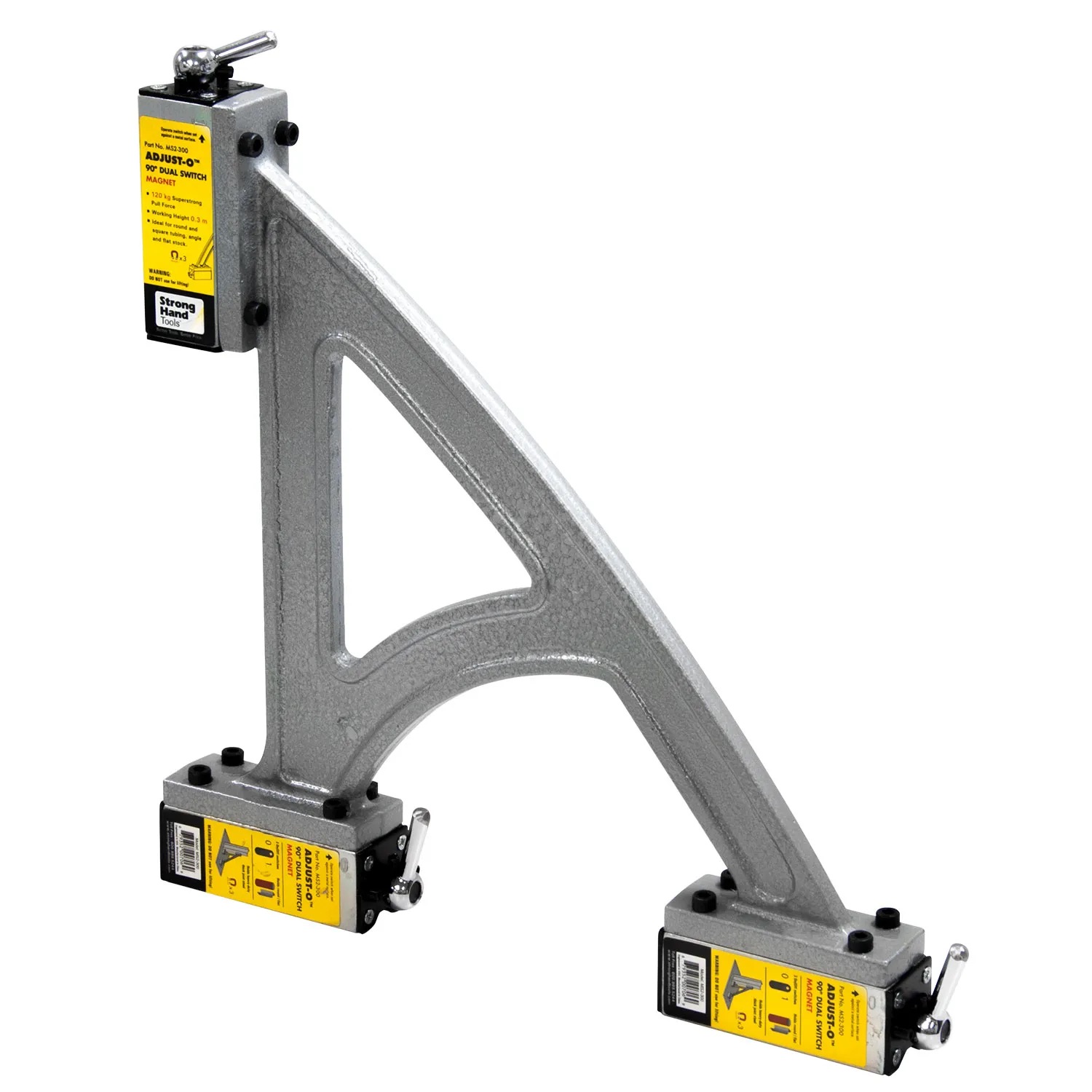
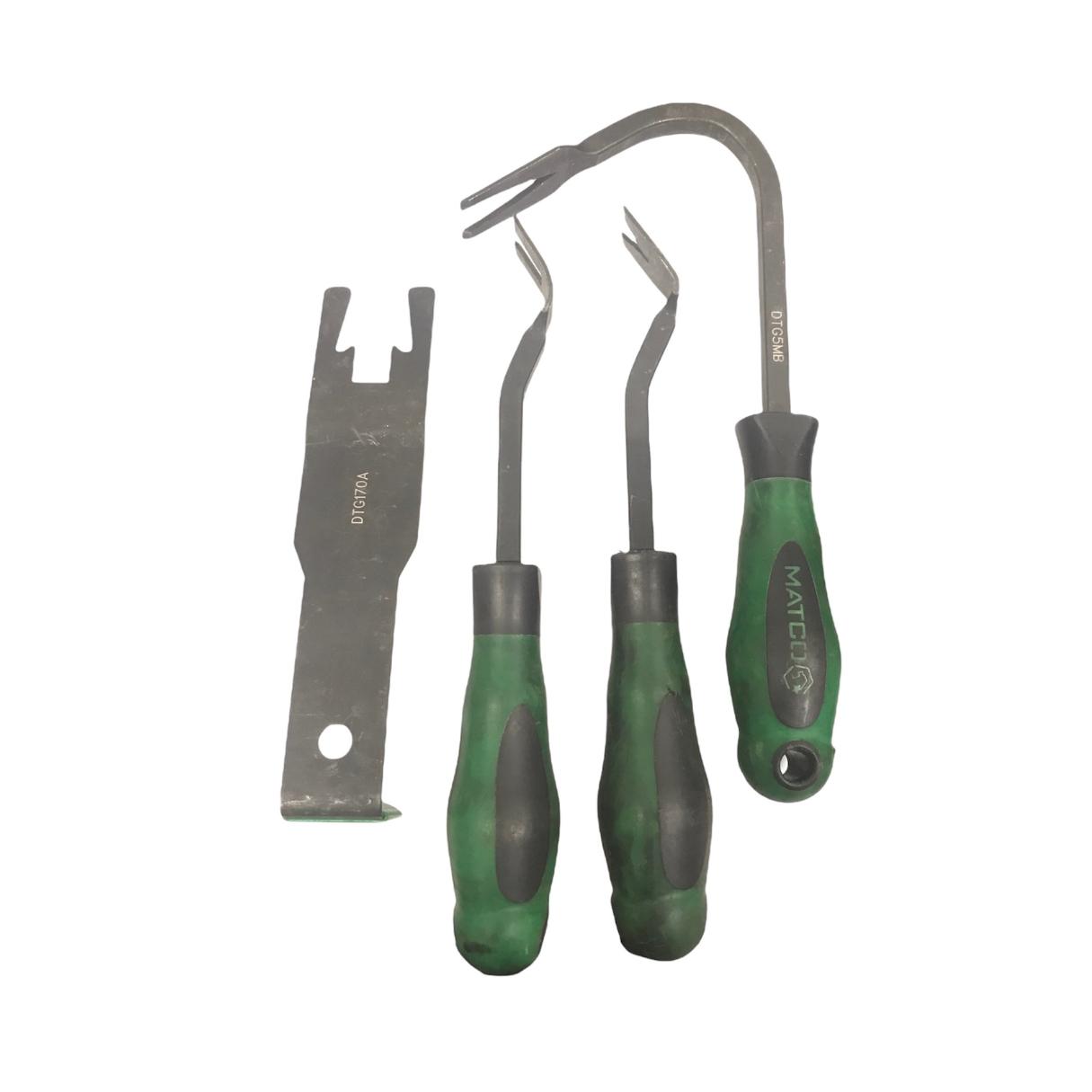
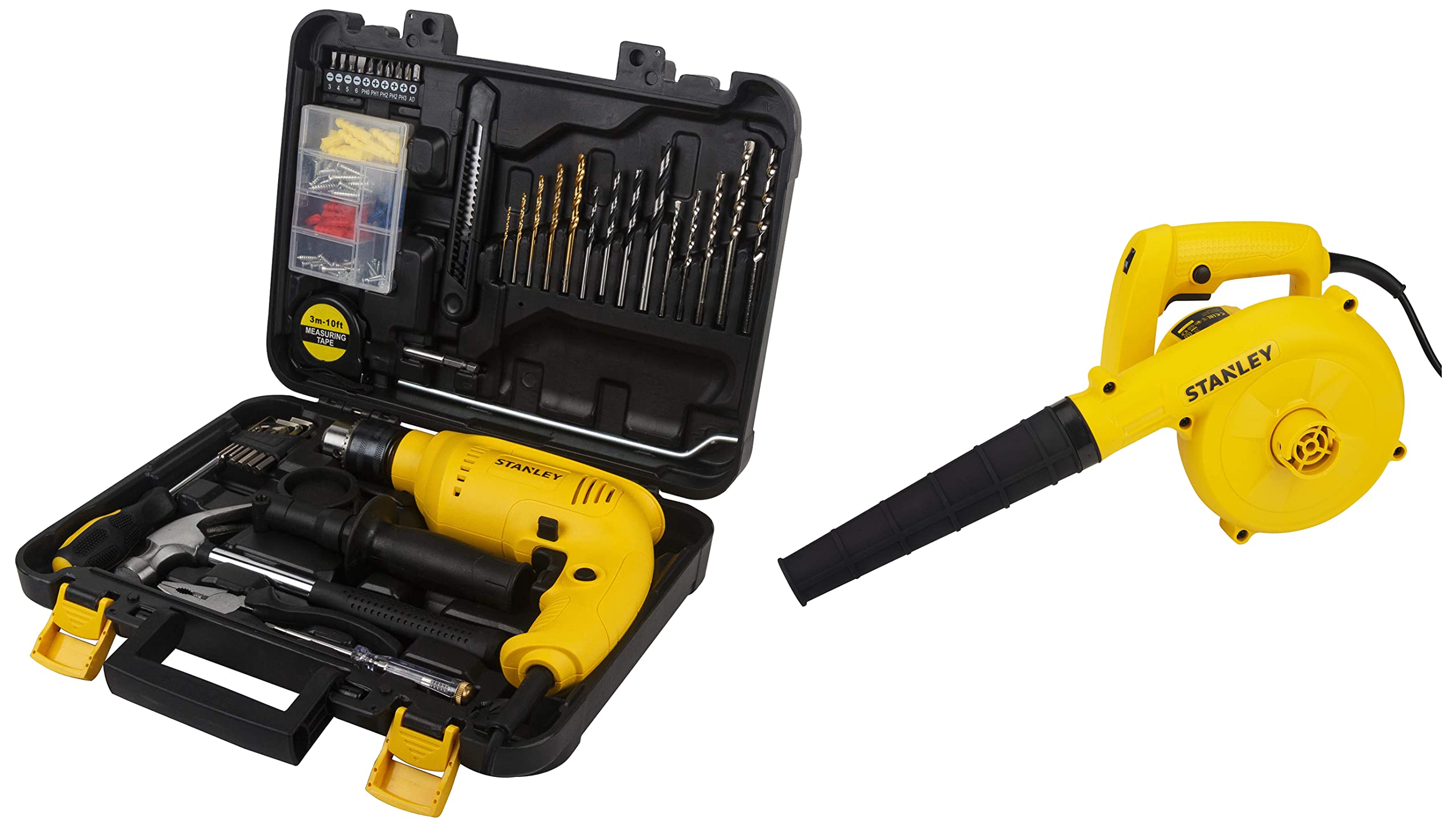

0 thoughts on “Where To Get Antique Hand Tools”